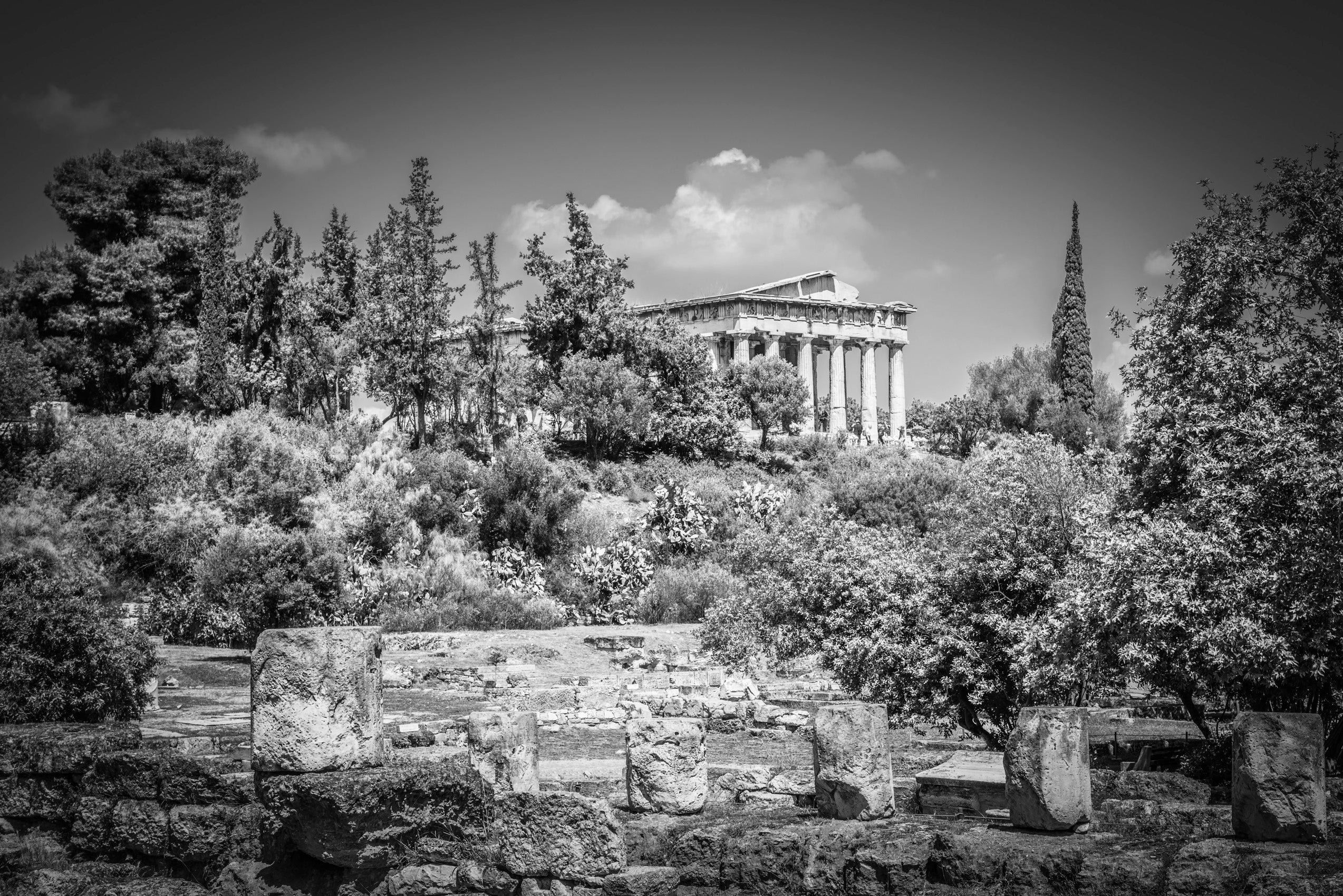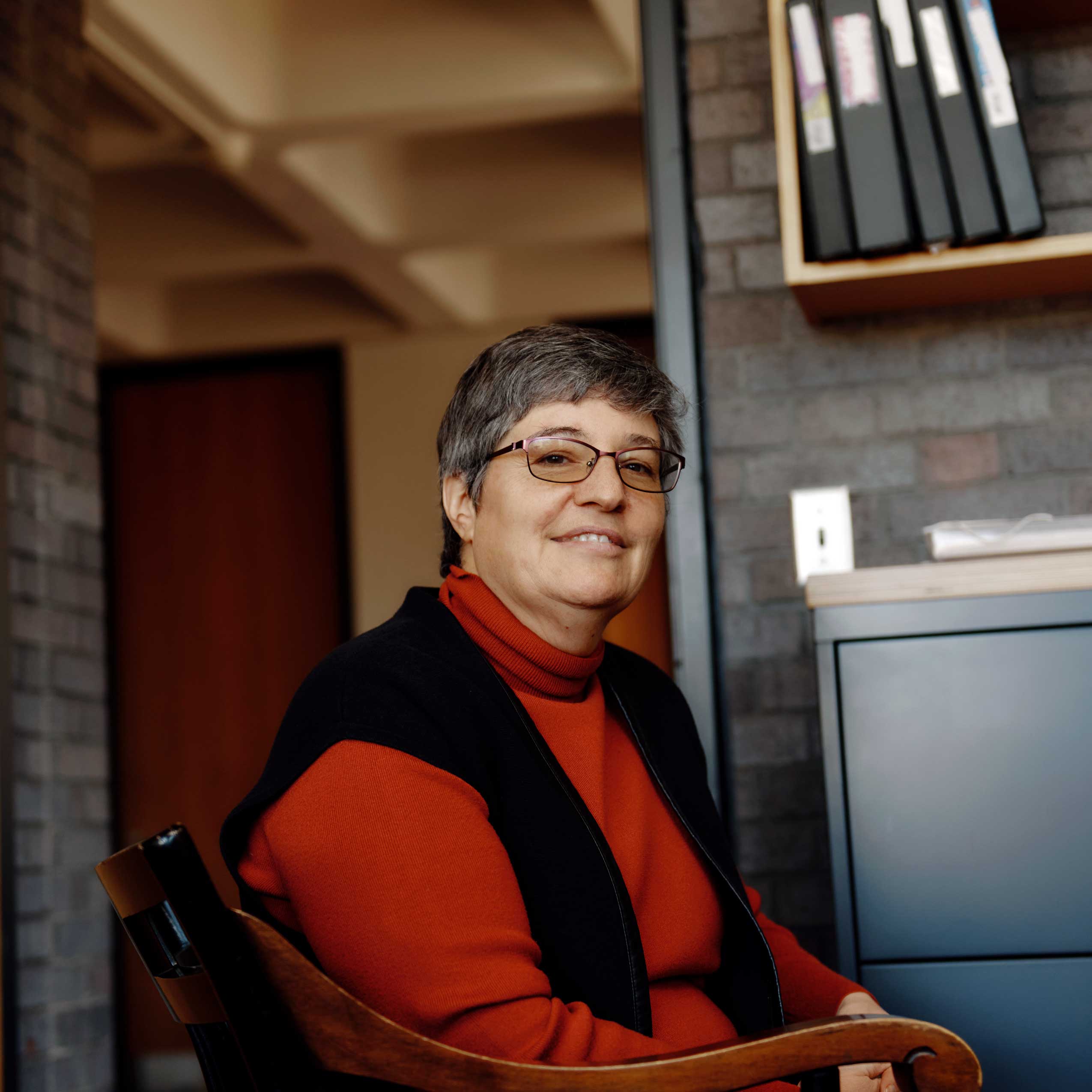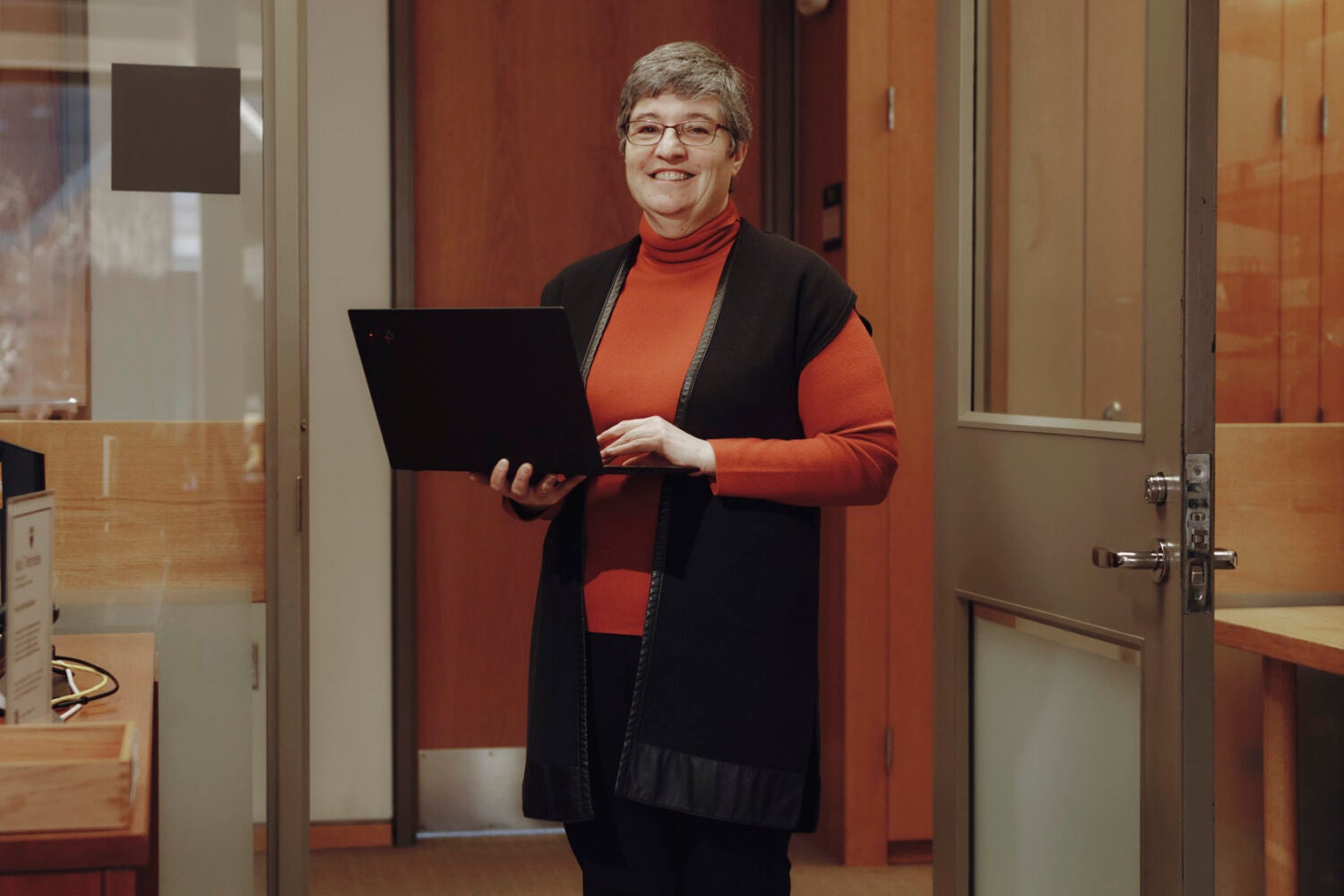Walking picket lines during union strikes with her parents, both labor activists, made a lasting impact on young Adriaan Lanni. So too, years later, did dangling from a rope at an archaeological dig in Athens while searching for bits of the past.
While those moments may seem unconnected, they helped inform the Harvard Law professor’s work as both a scholar of ancient Greece and a legal expert in contemporary criminal justice. In her current teaching and scholarship, she often taps one field to help illuminate the other.

“I think my research has really benefited from the fact that I’m trained not just as a classicist, but as a lawyer,” says Lanni, Touroff-Glueck Professor of Law at Harvard, who teaches courses in ancient law, modern criminal law and procedure, and restorative justice. “A lot of what I do is a kind of intellectual arbitrage, where I take these great insights in modern law and society writing and question whether they apply to or can shed light on how the ancient Athenian legal system worked.”
Lanni, the author of two books and numerous articles on the Athenian legal system, likes to reverse engineer her thinking, using examples from the ancient city-state to offer up a more expansive approach to American democracy and criminal justice. A pragmatist, she knows that ancient Athenian law operated in a completely different context and cannot map directly onto contemporary society. But she believes that examining how the Greeks structured their laws and institutions can help spark the present-day legal and political imagination, combating “false assumptions we have about how democratic institutions have to operate by providing important counterexamples.”
One such example involves jury duty in ancient Greece. Consisting of hundreds of local residents, Athenian juries determined not just the defendant’s guilt or innocence, but also the punishment. During deliberations, jurors considered the broader implications a sentence might have, not just on the accused but also on the community at large.
“A lot of what I do is a kind of intellectual arbitrage,” says Lanni, who is trained as a classicist and a lawyer.
Lanni wonders if today’s U.S. juries might do something similar in noncapital cases, potentially counteracting the severe sentencing from the 1980s and ’90s that swelled the nation’s prison population and helped give the United States the world’s highest incarceration rate.
“With all of this, just because one institution works in one context or society, you can’t just transplant it, but it’s a way of thinking about other options and opening your mind. And then you have to do a second analysis of what would that really look like in today’s society?”
In a forthcoming book, Lanni discusses the private prosecution system in ancient Athens that enabled victims to seek justice for a wide range of grievances. While flawed in many ways, she admits, it provided many with access to justice that they would not have had in a system that relies more heavily on officials to pursue prosecutions.
She compares the Athenian model to Philadelphia’s shift from private to state prosecution in the 19th century, citing the work of historian Allen Steinberg, author of “The Transformation of Criminal Justice: Philadelphia, 1800-1880.” In the age of private prosecution, Lanni says, Steinberg found there were many more prosecutions in Philadelphia brought by women, including more for domestic violence. “Those became the sorts of crimes that the public prosecutor just doesn’t take seriously or pursue until well into the 20th century,” she adds.
“These are the kinds of comparative questions that I’m exploring, using Athens as a way of thinking about how we pursue criminal law, what we decide is criminal, and how we prosecute criminal cases,” says Lanni. “I want my work to help denaturalize this idea that a criminal justice system has to work in a particular way and point out the advantages and disadvantages of different institutional designs.”

Lanni credits her parents, both union organizers, for sparking her early interest in community empowerment and democratic governance. Later, in a Yale class on Athenian democracy, she learned how magistrates were chosen by lottery instead of elections — a process the ancient Greeks deemed aristocratic — and a world opened to her. “They thought that to be truly democratic, like Aristotle says, you should rule and be ruled in turn,” says Lanni. “And as someone interested in community organizing, that just really struck me.”
She majored in classical civilization and then earned a Marshall Scholarship that enabled her to study ancient Athenian law at the University of Cambridge — an experience that included a summer dig at the Agora in Athens. Lanni had long planned for a legal career, but her love of history never faded. At Yale Law School she continued to write about Athenian law and eventually “gave in,” earning in addition to her J.D. a Ph.D. in history from the University of Michigan. She shifted her focus from labor to criminal law after a class with Stephen Bright, a longtime proponent of abolishing the death penalty and former director of the Southern Center for Human Rights.
“That was so eye opening,” says Lanni, “and I became really interested in this idea of community approaches to justice.”
In her comparative law class, Lanni explores legal systems in classical Athens and Rome, ancient China and the Near East, again helping students consider a range of current possibilities by looking to the past.
“As Harvard graduates, they’re going to be in a position to not just apply the law in a very narrow way,” says Lanni, “but to think more openly about how to change and reform institutions, so getting them thinking in this broader institutional design framework is critical.”
For Lanni, an important part of judicial reform is restorative justice, which encourages mediation and reconciliation with victims as an alternative to conventional prosecution and punishment. She teaches and writes about it and is working on an overview for the Elgar Advanced Introductions series. True to form, she approaches the topic with an expansive and inclusive point of view.
“I think I can bring to this work a really rigorous analysis of studies and an open mind that can look at both the advantages of restorative justice, which I think are clear, but also some of the worries and difficulties in implementation and the criticisms,” Lanni says.
Her approach has made a difference. Many former students have told her that her Harvard course changed how they think about victims, responsible parties, and the ultimate goal when representing the prosecution or defense in criminal proceedings.
“For me,” says Lanni, “that’s the best feedback.”
